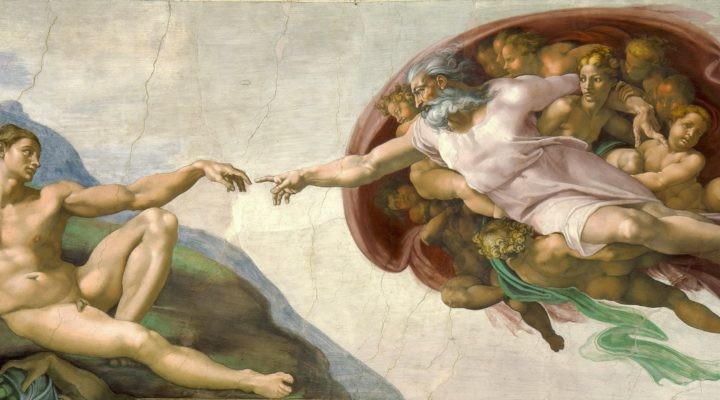Why does a literal reading of the Bible hold such attraction for Christians? More to the point: How has belief in literalism led to Christian nationalism, to such awful ideas about how immigrants should be treated, to discrimination against women and minorities, to an insistence that women can’t be ordained as pastors, to screams about “wokeness,” Critical Race Theory, Replacement Theory, white supremacy, an anti-science movement against the COVID vaccine and for climate denial?
Why are literalists so determined to be free from everything, even truth itself?

Rodney Kennedy
If a theology is judged by the results it produces, then literalism has a lot to answer for in terms of its prodigy. Like drowning sailors clinging to pieces of wood in a stormy ocean, literalists hang on to outdated notions about creation and the role of women. If it is true that we shall know them by their fruits, then literalists have produced some strange fruit among us: White hegemony, male supremacy, violence against the LGBTQ community, an attitude of consumerism toward truth, and an obsession with absolute freedom.
Perhaps we can think of literalism as an attempt at providing epistemological comfort for believers. Literalists can’t stand to be told they don’t have as much right as anyone else to espouse views on any topic they think they understand. Not content with a literal Bible, they grant their preachers an authority to speak literally about issues that never occur in the Bible.
For example, a climate change denier can make fun of the science of climate change and speak like a literalist to his congregation. The congregational consciousness automatically confers the authority of biblical literalism on every word that proceeds from their pastor’s mouth. The pastor has literal authority on subjects he may not even understand. He boldly refutes science, history and psychology.
And even on subjects the pastor should understand, literalism causes him to teach extra-biblical ideas. This might explain the truly tragic spectacle of pastors who argue Jesus will literally return to earth and rapture believers within their lifetime even though the word “rapture” appears nowhere in the biblical text.
Literalists are greedy for certainty.
Most of all, they have substituted a literal Bible for God. Since God can’t be seen out in public, they have replaced God with words about God. A literal Bible is a replacement god.
Hebrew scholar Richard Elliott Friedman has written a book called The Disappearance of God, in which he maps divine recession in the Hebrew Bible. Friedman shows God receding from the scene, leaving the responsibilities of just and holy living to actual human beings. God seems to step back, not intervene, so that human beings have room to take responsibility. This flies in the face of literalism, which portrays God as a coercive presence constantly intervening to get God’s way. The literalist doctrine of creation insists on divine intervention rather than divine persuasion. Somehow literalism always circles back to creation.
“They have substituted a literal Bible for God.”
After the debacle at Babel, no human ever visibly saw God again. Once Moses saw God’s backside on Mount Sinai, the period of visible encounters with God came to an end. God assumed a lower profile, working miracles for smaller and smaller audiences. Even angels got scarce: there is no evidence they tended to anyone after Elijah.
Barbara Brown Taylor says: “Gradually, the prophetic experience of God became one of visions and dreams. From Hezekiah on, the world described in the Hebrew Bible was one from which God had largely retired, leaving humans to interact with other humans. The acts of God were over. The remembered words of God took their place. The world was no longer a place where seas split and snakes talked, but one in which human relationship to the divine was largely a matter of personal belief.”
Biblical literalists are not happy with God disappearing from the scene. They need God to thunder from Sinai. They demand God show the world who is boss. And if God will not take charge, then the literalists will do it for God. They tell us that they have the word — the literal Bible — that now speaks what God would speak if God were to show up one morning in Washington, D.C.
Literalism not only offers us a physical, material idol — the Bible — but ignores the reality that all language about God is tentative, contestable and often combatable. People find themselves disagreeing with one another about texts, meanings and interpretations. The result often has been strife, schism and war.
“We are not required to embrace certainty.”
Old Testament scholar Ellen Davis puts it succinctly: “It is a sad fact of history that authoritative texts held in common but read differently are less likely to create mutual sympathy than bitter division between religious communities.”
Literalists, by and large, seem unwilling to admit the natural order of theological language is comprised of arguments. They want no argument, no debate, no consideration of other ideas.
Literalists require a literal Bible to be comforted that they are right, certain and possessors of the entire truth about, well, everything. But often they are precisely wrong.
When you hear David Barton pontificating a horde of misinformation and false claims about the founding fathers of America, you are face to face with a literalist who has read American history badly. When you hear Ken Ham insist he is actually the scientist and biblical literalism is the true science of creation, you are witnessing a literalist who knows neither the word of God nor science.
Take a deep breath. Relax. God is alive and well on planet earth. We are not required to embrace certainty. It is perfectly acceptable to live within the uncertainties of a risky universe and to do so with faith.
After all, our faith is in God. Our most ancient creed, The Apostles’ Creed, never mentions the Bible. It boldly professes, “I believe in God, maker of heaven and earth.”
Rodney W. Kennedy is a pastor in New York state and serves as a preaching instructor at Palmer Theological Seminary. He is the author of nine books, including The Immaculate Mistake, about how evangelical Christians gave birth to Donald Trump.


